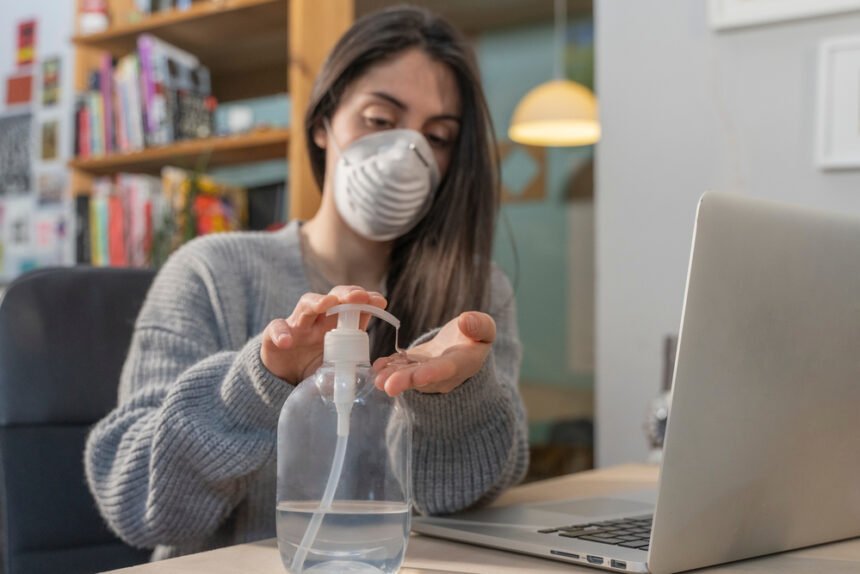While countries handle the pandemic well with a responsive public health system, some states still have a steadying rise in their cases. Most of these countries grappling with the surge of patients will need a fair amount of resources, especially when medicine and hospital beds will be in high demand.
But how do we help the healthcare system without overloading it with patients? One simple and effective way of ensuring assisting the load in of cases is through quarantine and lockdowns. Preventive countermeasures can help ensure that the rate of infection of COVID-19 is kept at a minimum.
Why Should I Go to Quarantine?
There’s a multitude of different reasons why individuals will need to go into quarantine. Typically, the most common reason is that you have gotten in contact with an individual who is deemed positive. Going into quarantine is a necessity that will help healthcare workers and professionals. The advantages of going into quarantine can benefit the healthcare system by:
- Frees up equipment and resources that can be used for critically-ill patients
- Minimizes local transmission between individuals
- Makes it easier to track outbreaks and sources of infections
- More accessible to positive quarantine individuals.
- Contract tracing becomes more convenient.
Four scenarios can usually result in mandatory quarantine:
- Close contact with an acquaintance — Normally, you’ll have to quarantine yourself for 14 days right after being in close contact with a co-worker, neighbor, or acquaintance.
- Close contact with co-resident — 14 days of quarantine from the starting date when you have close contact with a complimentary fellow resident.
- Extended close contact — This is the same with scenario 2, but you will need to extend your quarantine if you have another encounter with the infected individual.
- Close contact with co-resident and living with them — Most of the time, you will be separated from the infected individual. However, there are certain circumstances where you will need to live together with the individual. After the person has met the criteria in ending home isolation, you have to quarantine for another 14 days.
But other than these four scenarios, local government entities and circumstances will usually call for quarantine, especially when it comes to the following conditions:
- Government Mandate — Authorities and entities in your area will determine if a mandatory lockdown and quarantine should take into effect. Typically, this is due to a spike in cases of a highly infectious disease in your area. Government-mandated lockdowns will often last weeks to months. In some cases, governments will have the power to extend lockdown if deemed necessary.
- Monitoring Sickness — If you are coming down with a fever, it’s essential to go into quarantine and have yourself tested by healthcare workers that have the necessary personal protective equipment and testing kits. Even though you have not been diagnosed with any disease, it’s still crucial to take the necessary precautions when in quarantine by isolating yourself.
- Mandatory Quarantine After Traveling — Normally, individuals who have been traveling to different countries will need to isolate themselves for 14 days in designated facilities before returning to their residence. Some places will restrict travel to some regions and provinces that are affected by the pandemic, which means that travelers will need to go on another 14-day quarantine when traveling to another city or area.
Professional Help
When you’re in doubt about what you have to do when monitoring your health, it’s recommended that you ask for professional advice. Having professional supervision will help with prescribing the right medical prescriptions.
When you’re in quarantine, it’s expected that you do not have any physical contact with any individual, unless they have been in touch with you from the very beginning. Fortunately, telemedicine companies have designed mobile applications and software that patients can use to communicate remotely with professional medical practitioners without physical contact.
Monitoring Your Health
When monitoring your health, here are essential points that you’ll need to take into account:
- Watch for symptoms of coughing, fever, sore throat, and difficulty in breathing. The symptoms of COVID-19 will vary for each individual, and it’s crucial to write down what you are experiencing.
- Take your temperature twice a day. You will need to take your temperature 30 minutes after meals and exercise. There should be 6 hours interval every time you take a medicine that can suppress and lower temperature. Thermometers have to be disinfected after every use.
- If your fever is past 100.4 Fahrenheit (38 degrees), you’ll need to call 911 for life-threatening emergencies.
Monitoring your health while you’re in quarantine might be a daunting task, but it is a necessity nonetheless. It’s essential to follow the rules and regulations that have been set by your local government officials as these are for your safety and well-being.
Information about COVID-19 has been developing in the past few months, and regulations can change at any given moment. We must keep ourselves open to any new details while filtering out any misinformation from unproven sources.

